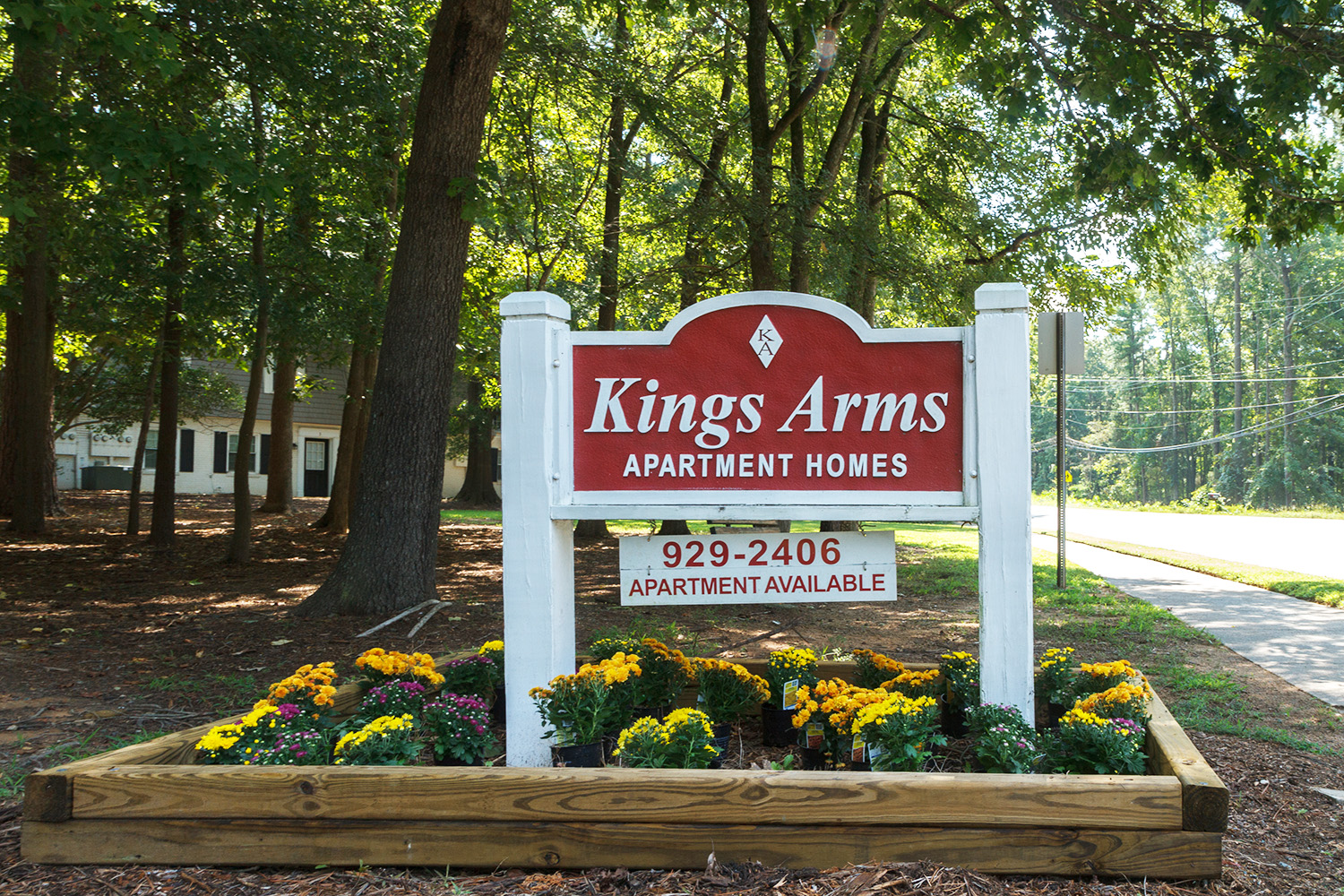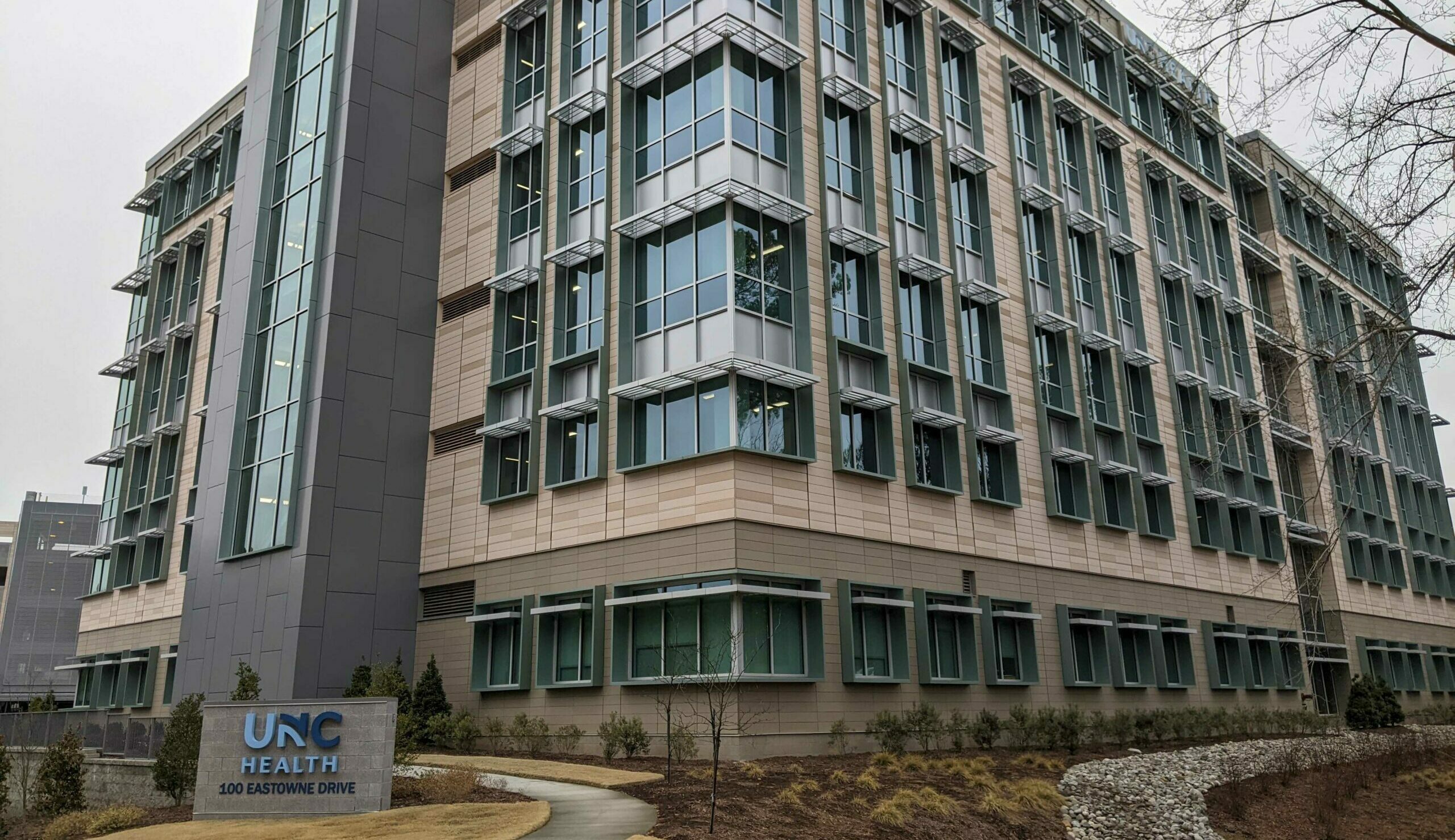Critics say Chapel Hill is not prioritizing affordable housing, especially in the Ephesus-Fordham district.
While a small portion of the 190-acre Ephesus-Fordham district does offer developers a density bonus for building affordable housing, there’s no mandate for affordable housing at Village Plaza Apartments.
Chapel Hill Town Council member Donna Bell says the town is prioritizing affordable housing as Ephesus-Fordham becomes more developed.
“Our thought behind Ephesus-Fordham is that this is a space that creates income,” says Bell. “It could bring more property taxes and multifamily buildings that don’t cost the same as single-family buildings, that it would bring more office and more retail. And thus, from those additional tax funds, we could support things that are important to us, like affordable housing and our transit.”
Chapel Hill’s new zoning rules for the Ephesus-Fordham district, known as form-based code, set parameters for building height, parking space and other details. And it authorizes the town manager, instead of the town council, to approve projects that meet the criteria.
Since the council enacted the new code ten months ago, the town received three project applications, and one, Village Plaza Apartments, has been approved and is now being built.
“When we talk about the Ephesus-Fordham piece, I’m thinking about the affordable rental units that are going to go away or have gone away over in that area, and that’s a sad state,” says Delores Bailey, executive director of the non-profit, EmPOWERment Inc. EmPOWERment helps place low-income people in homes.
Mark Marcoplos, who operates a local green building company, says we can’t have a substantial discussion about affordable housing without also talking about a “living wage,” the minimum wage necessary to meet one’s needs while living in a place.
“What we’ve done in Chapel Hill all these years, we’ve pumped up and advertised our school system,” says Marcoplos. “We’ve advertised to retirees. We’ve tried to create this oasis of wealth, and we were successful at doing that.”
Marcoplos also emphasizes the importance of adding routes to the public transportation system to serve those who cannot afford to live in Chapel Hill and Carrboro. Marcoplos himself is a rural Orange County resident.
Bell, Bailey, Marcoplos and other Orange County leaders came to the WCHL Community Forum to discuss local affordable housing. Also in the room were Tish Galu, board chair of the nonprofit Orange County Justice United, and Daniel Eller, president and CEO of Eller Capital Partners, a major local property owner.
Several members of the panel said the greatest local housing need is rental housing affordable to people earning below 80 percent and below 30 percent of the area median income.
The panel touched on many other facets of affordable housing in Orange County. You can find audio from this panel and all the other panels – including a panel on development in Chapel Hill and one on poverty – here.







Comments on Chapelboro are moderated according to our Community Guidelines